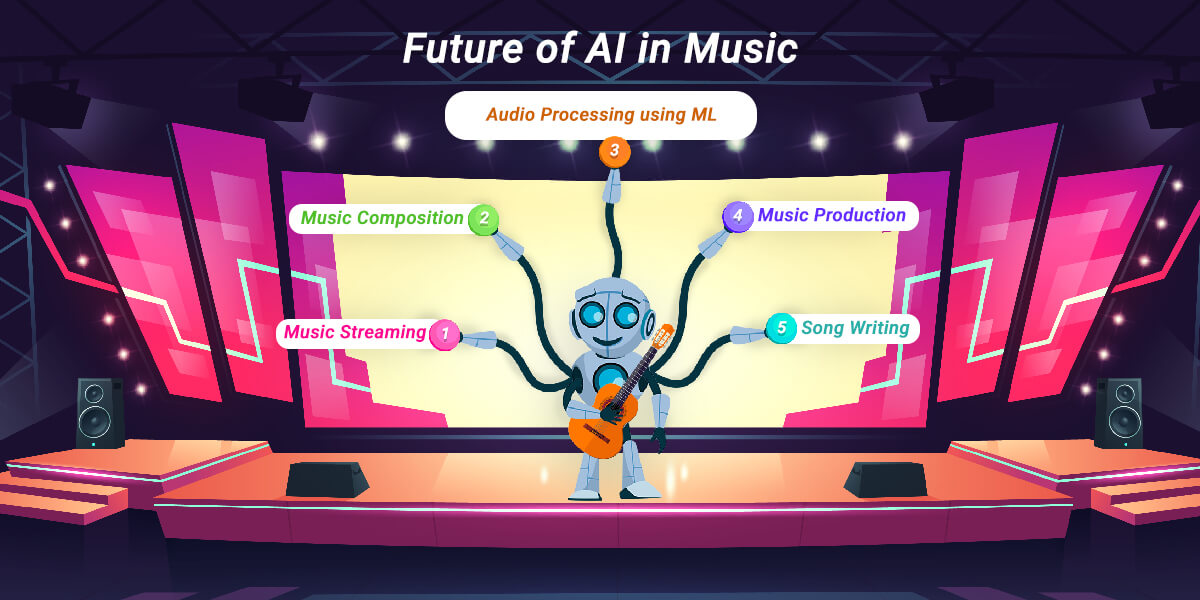In recent years, Artificial Intelligence (AI) has made significant strides in various fields, and music education is no exception. From learning to play instruments to understanding music theory and composition, AI tools are reshaping how people approach learning music. This article explores the impact of AI on music education and how individuals can leverage these technological advancements to enhance their musical journey.

AI in Learning Instruments
Learning to play a musical instrument traditionally involves learn music with ai hours of practice under the guidance of a teacher. AI-powered applications now offer interactive tutorials and real-time feedback, making it easier for beginners to learn at their own pace. These apps use machine learning algorithms to analyze a student’s playing and provide constructive feedback on areas needing improvement, such as timing, pitch accuracy, and technique.
For instance, a violin student can use a mobile app equipped with AI to practice scales and receive instant feedback on intonation and bowing technique. Similarly, a piano student can benefit from AI software that listens to their playing and suggests ways to improve dynamics and phrasing.
Music Theory and Composition Assistance
Understanding music theory and composing music are complex tasks that often require formal education and years of practice. AI tools can assist aspiring musicians by generating musical ideas, harmonies, and melodies based on predefined rules and algorithms. These tools can analyze existing compositions to identify patterns and styles, helping composers explore new creative possibilities.
Moreover, AI can aid in educational settings by providing virtual tutors that adapt to individual learning styles and progress. These AI tutors can generate personalized lesson plans, recommend practice routines, and track students’ development over time.
Accessibility and Customization
One of the most significant advantages of AI in music education is its ability to democratize access to learning resources. Regardless of geographic location or financial means, anyone with a smartphone or computer can access AI-powered music learning tools. This accessibility helps aspiring musicians from diverse backgrounds pursue their passion for music without traditional barriers.
Furthermore, AI enables customization in learning experiences. Students can tailor their learning journey based on their goals, whether it’s mastering a specific piece, improvising in jazz, or understanding complex music theory concepts. AI algorithms can adapt content and difficulty levels to match individual proficiency and learning pace, providing a personalized learning experience.
Challenges and Considerations
While AI offers promising opportunities in music education, there are challenges and considerations to address. AI tools are only as effective as the data they are trained on, which means they may not capture the nuances of human expression and interpretation that are crucial in music. Moreover, there is a concern that reliance on AI may diminish the role of human interaction and mentorship in musical learning.
Additionally, ensuring the ethical use of AI in music education, such as protecting data privacy and fostering inclusivity, remains essential. Educators and developers must collaborate to harness AI’s potential responsibly and ethically.
Conclusion
AI is transforming the landscape of music education by offering innovative tools for learning instruments, understanding music theory, and enhancing creativity in composition. As these technologies continue to evolve, they hold the promise of making music education more accessible, personalized, and engaging than ever before. By embracing AI responsibly, educators and learners can unlock new possibilities and enrich the musical journeys of future generations.

